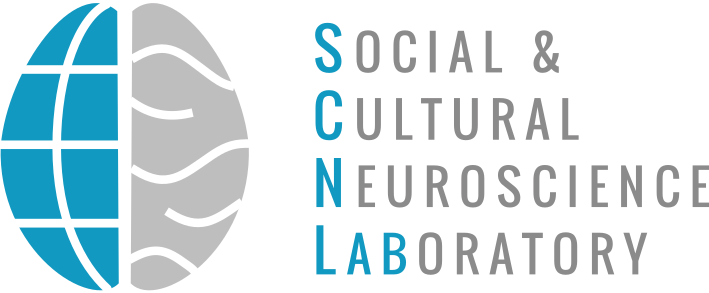Lab Overview
We use theory and methods from neuroscience (e.g., fMRI), psychology (e.g., psychophysiology), and anthropology (e.g., evolutionary theories) to explore how humans acquire cultural beliefs and practices, how these beliefs and practices shape psychology and brain function, and how both processes impact human health and health care. The main focus of our current work is investigating how sociocultural factors (e.g. doctor-patient relationship, demographics, and language) and environmental factors, influence the pain experience and its underlying neural correlates.
This work is funded in part by various grants aimed at using functional MRI and medical simulations to explore psychological and neural mechanisms underlying demographic biases in opioid and non-opioid pain treatment. Our other main line of work focuses on the psychological and neural mechanisms underlying cultural acquisition. We are also open to exploring other research questions exploring the interactions between culture, brain, and health. In our work, we emphasize increasing the ecological validity of paradigms used to study sociocultural phenomena and using advanced neuroimaging analysis techniques such as machine learning and fMRI-based mediation analyses to try and uncover tighter links between brain mechanisms and behaviors of interest. You can find out more about the lab by exploring the rest of the site, especially the work of our current graduate students.
Application Information
Prospective graduate students should apply to the Neuroscience program at the Huck Institute of Human Sciences or Biobehavioral Health program at the College of Human Health and Development.
The application deadline is:
December 1st for Biobehavioral Health
December 15th for the Neuroscience Program.
All applicants are encouraged to contact Dr. Losin to express interest in the lab and include their C.V., an unofficial transcript and a sample of their scientific writing. Applicants must also mention their interest in working with Dr. Losin in their application materials. Graduate student funding is available via a Research Assistantship. Students applying to the SCN Lab typically apply through the above programs.
Facilities
The SCN lab is based in the Biobehavioral Health and Human Health Development Buildings. We perform our research at state-of-the-art neuroimaging facilities at the Social, Life and Engineering Sciences Imaging Center (SLEIC), which houses a Siemens 3T Magnetom Prisma Fit whole-body MRI scanner, as well as an adjacent control room, interview room, conference suite, and a simulator room. The SCN Lab has a dyadic psychophysiology lab in which we study the dynamics of real-world social interactions to complement our work in the scanner. We also have relationships with departments at Penn State University, including the Penn State College of Medicine, which facilitate our research efforts.
Department and Training
Huck Institutes of the Life Sciences
The Huck Institutes of the Life Sciences at Penn State aim to enhance life science research by promoting interdisciplinary collaboration. They offer various core facilities, including those for genomics, transgenic mice, metabolomics, microscopy, and proteomics, providing advanced research tools to all Penn State researchers. Additionally, their Bioinformatics Consulting Center offers data analysis services for high-throughput sequencing, covering everything from basic data manipulation to developing specialized methodologies.
The Neuroscience program offers students interdisciplinary training, in various research areas including (1) Cognitive Neuroscience and Behavioral Neurobiology, (2) Molecular Neurobiology and Developmental Neuroscience, (3) Neural Engineering, and (4) Systems Neuroscience.
College of Health and Human Development
The College of Health and Human Development is a collaborative community at Penn State focused on improving human health and quality of life through innovative education, interdisciplinary research, and outreach. Its research efforts have significantly increased external funding from $9.7 million in 1991–1992 to over $67 million in 2020–2021. The College has academic units and research centers that tackle major societal issues and influence related policies. Faculty members are leaders in their fields and frequently collaborate with colleagues from the College of Nursing, Population Research Institute, Social Science Research Institute, and College of Medicine.
Students are trained in: (1) biological and physiological processes, (2) psychological and behavioral processes, (3) Public Health and policy (4) Statistics and Research Methods.
State College
State College is a vibrant community that combines academic excellence with an engaging lifestyle. It has many welcoming spaces like Abba Cafe and Commons for collaboration, as well as local farmer's markets and scenic hiking trails. The Bryce Jordan Center offers a rich cultural scene with diverse performances. In summer, we enjoy picnics at Lake Perez, and in winter, you can explore cross-country skiing at Tussey Mountain. Annual festivals, including the Arts Fest and 4th of July fireworks, strengthen community bonds. Football season also brings excitement with home games in the second-largest stadium in the country, while nearby towns like Lemont and Boalsburg add charm. Overall, State College is an inspiring and spirited environment that enhances students’ and the research experience.




